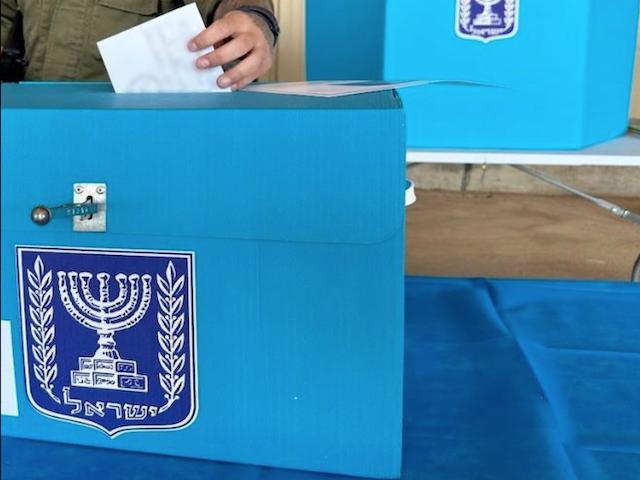In the latest municipal elections in Israel, a remarkable demonstration of democratic engagement unfolded as Israeli ministers and Knesset members actively participated and interacted with the media, showcasing their commitment to the civic process.
Among the prominent figures participating was Yair Lapid, the Opposition Leader and Chairman of Yesh Atid, who made headlines as he cast his vote in Tel Aviv, endorsing Orna Barbivay, a former Yesh Atid Minister, for the mayoral position against the long-serving mayor, Ron Huldai. Lapid's support for Barbivay was not merely ceremonial; it was an affirmation of his genuine confidence in her leadership qualities, which he praised as unparalleled, declaring her "the greatest manager I have met in my life." This endorsement came alongside a significant statement made by Lapid late at night, emphasizing the importance of these elections and highlighting Yesh Atid's extensive engagement in the democratic process with 60 candidates competing nationwide.
Today in Israel there are elections for the local municipalities - Tamar was running for the presidency of the Eshkol regional council, but on October 7th she was murdered in cold blood in her home by Hamas terrorists, along with her husband and her three small children... the… pic.twitter.com/GKry1wm3rO
— יוסף חדאד - Yoseph Haddad (@YosephHaddad) February 27, 2024
These elections are more than a routine democratic exercise; they are a pivotal moment for Israeli municipalities, coming at a time when the nation has faced an array of challenges. The past half-decade has been particularly strenuous, with a global pandemic, periods of governmental instability, heated debates over judicial reform, and ongoing conflicts. These trials have tested the mettle of local governance, showcasing its indispensable role in maintaining the fabric of society.
עמית סגל: לראשונה זה 20 שנה: קלפי ישראלית ברצועת עזה.
— 🔅 זירה פוליטית‼ (@Zira_politit) February 20, 2024
🔅זירה פוליטית‼️ pic.twitter.com/TxCm7VkwZQ
Lapid's observation that these elections were held amidst wartime conditions serves as a powerful testament to the robustness of Israel's democratic framework, suggesting that national elections could be conducted under similar circumstances without compromise.
In the midst of war, Israelis are going out and voting in municipal elections.
— Israel ישראל 🇮🇱 (@Israel) February 27, 2024
This is a testament to the unwavering spirit of Israelis in shaping our future, despite current challenges.
Here’s to democracy 🇮🇱 pic.twitter.com/Lo5fkEKqcw
President Isaac Herzog, after voting in Jerusalem, contributed his perspective to the dialogue, emphasizing the significant impact local governance has on the everyday lives of citizens. Herzog stressed the importance of municipalities, particularly in times of crisis, and called on voters to exercise their civic duty with a sense of communal responsibility and empathy, especially towards families of captives in Gaza.
The elections also provided a platform for Merav Michaeli, leader of the Labor Party, to express her support for Ron Huldai's tenure as mayor of Tel Aviv. Michaeli's praise for Huldai's experienced and steady leadership underscored the importance of reliable governance in upholding community values and rights during tumultuous times.
Today in Israel there are elections for the local municipalities - Tamar was running for the presidency of the Eshkol regional council, but on October 7th she was murdered in cold blood in her home by Hamas terrorists, along with her husband and her three small children... the… pic.twitter.com/GKry1wm3rO
— יוסף חדאד - Yoseph Haddad (@YosephHaddad) February 27, 2024
This vibrant array of political engagement and discourse encapsulates the dynamic nature of Israel's democracy. The diversity of opinions and passionate endorsements reflect a collective dedication to good governance and the well-being of the populace. As Israelis from various backgrounds took part in this democratic process, the municipal elections not only shaped the future of local leadership but also reinforced the foundational strength and resilience of the nation's democratic institutions.
Through these elections, Israel reaffirmed its commitment to democratic principles and the continuous improvement of its societal fabric, demonstrating the nation's unwavering dedication to fostering a robust and vibrant democracy.


